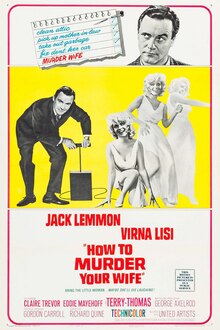 |
| Surjit Singh Chhokar |
What is double jeopardy? The principle seems to have its origins in the prohibition of the oppressive use of the criminal law through 'constitutional' safeguards. This in turn may have had its origins in superstition or beliefs in divine justice, as a as the victim of a failed execution was allowed to go free - the thought being that a higher power had intervened to see that justice was done. By the eighteenth century though this had settled down into the modern belief about preventing oppression. The powerful should not be allowed to keep bringing prosecutions against an individual, or to bully successive juries into returning the verdict they wanted. Reading Hume's Commentaries, he is concerned that a person who has stood trial for a crime once - been in jeopardy of his life - should not be put through the process again and again. For Hume it did not matter if the flaws in the prosecution could be attributed to the a poorly assembled case, errors on the face of the indictment, or that the prosecutor disagreed with the verdict returned by the jury. His view was that a person who had 'tholed their assize' should not be forced to stand trial a second time on an indictment relating to the same facts for this would open the door to oppression. Equally, this meant that a prosecutor should not be able to make changes and bring the case again on substantially the same indictment. And this came to be regarded in modern terms as a 'procedural' defence - the prosecutor was barred from reprosecuting and an accused might faceed with a second charge might enter a plea in bar of trial.
(It is worth noting in passing that this is rather different from one popular understanding of the principle, which has been used in several movies, such as How to Murder Your Wife (1965). This is the belief that a person tried and acquitted of the murder of a certain individual cannot be prosecuted for the crime a second time, and might therefore have a carte blanche to carry out the crime without fear of further prosecution. The point here is that the principle attaches to charges on the incident, not the person of the victim, so a prosecutor - at least in Scotland - would have been free to bring charges relating to the second incident. But what is good for law is not necessarily good for the movies...).
Now a central assumption of the recent reforms of double jeopardy laws in the UK is that there have been significant changes in the way that crime is investigated and that the criminal law is enforced. This primarily is the argument that with advances in forensic science new evidence (such as DNA evidence) may come to light that may allow the prosecution to secure convictions in cases where this might not have been possible at the time of the original trial. This may well be so. The convictions in the Lawrence case were based on the discovery of minute traces of blood linking the accused to the crime - and it seems to be the reason why the police are being asked to reopen the investigation in the Chhokar case. However, while this is significant we should not lose sight of the concerns that shaped Hume's beliefs. The criminal law should not be used as a cover for the original failings of police and prosecution, and it may still be used in an oppressive way even if we believe that we are on the side of justice.
The crucial factor here will, I think, be the question of how the safeguards in the 2011 Act are interpreted and applied. These operate in two ways. First, the statute, while reaffirming the general principle of double jeopardy, seeks to limit the grounds on which new prosecutions might be brought. These grounds are principally where the acquittal was found to be 'tainted' by the behaviour of a juror, where significant new evidence emerges, or where the acquitted person later confesses to having committed the crime. And second, the Crown must apply to the Court for permission to bring the second prosecution.
While no one should be allowed to get away with murder, there are nonetheless important legal principles at stake here which tell us something important about the society we live in. How this plays out over the coming months will be an important test of both sets of values.

No comments:
Post a Comment